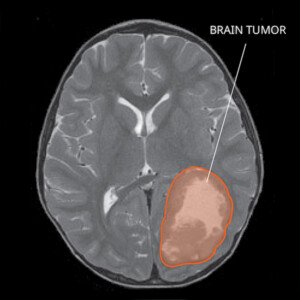When a brain tumor shows on a scan, how much time usually passes before a doctor calls the patient?
You may have read in a thread that it’s immediately, yet also have read posts in which a brain tumor patient said they were called several days later with the horrible news.
Thus, after reading these conflicting accounts, you may tend to assume that if you haven’t heard anything two full days after your brain MRI, that “no news is good news.”
But is it really?
Just who is present, other than the scanner techician, while the scanner is taking “slices” of the patient’s head when a brain tumor is on the list for possible causes of their symptoms?
How quickly are the images rushed to the radiologist if the radiologist isn’t present during the imaging procedure?
“It is uncommon for a radiologist to be present when the brain MRI is being performed, but they are typically read within 24 hours,” says Jonathan Stegall, MD, an integrative oncologist and medical director for The Center for Advanced Medicine, an adult cancer treatment center in Alpharetta, GA.
STAT vs. ASAP
“If the patient is having significant symptoms, and the MRI is ordered ‘stat,’ the radiologist will read it faster than this,” meaning, well under 24 hours, continues Dr. Stegall.
The ordering physician may state “ASAP” on the order, which means that getting in for the MRI may take several weeks.
But if the order says ‘stat,’ the patient will be scheduled pretty quickly. “Stat” has priority over “ASAP.”
It also all depends on the patient’s symptoms and where they are at the time of their complaint.
“Patients who present to the emergency room with symptoms worrisome for a brain tumor will almost certainly receive their imaging results within an hour or two, but patients who have an outpatient MRI will likely not hear anything nearly that fast,” explains Dr. Stegall.
“Every imaging facility is different in terms of how the radiologists review results.
“Typically, the provider who ordered the imaging – and not the radiologist – will be the one communicating the result to the patient.
“The timeline from the radiologist reviewing the images, the radiologist communicating those results to the ordering provider, and the provider reviewing the result and communicating it to the patient — can certainly take a day or two in most cases.”
Fast News Isn’t Always Bad News
While not hearing any news by near the end of the second day out from your brain MRI won’t always mean “nothing was found,” it’s also possible that the results coming in less than 24 hours later doesn’t always mean doom.
So only one day after the scan procedure when you see your doctor’s number appear on your phone, or see that “Test Results” alert in your email box, this may simply mean that patient load was light enough to allow a fast turnaround.
I underwent a brain MR angiogram to see if there was any dangerous vascular disorder causing my subjective one-sided pulsatile tinnitus.
Pulsatile tinnitus has many possible benign causes but can also be caused by the potentially deadly arterial venous malformation.
Less than 18 hours later I saw the alert in my email for “New Test Result” (Kaiser Permanente members can log into the site to access correspondence from their medical team).
This was a super fast turnaround; my heart was pounding. However, the scan showed NO concerning findings.
Some doctors will want to deliver good news as quickly as possible, knowing that their patient is terrified over what could be causing their symptoms.
Symptoms You Wouldn’t Think Can Be Caused by a Brain Tumor

In addition to unusual or persistent headaches, seizures, limb numbness or weakness, loss of balance, cognitive changes, nausea/vomiting, vision changes and speech difficulties, a brain tumor may cause the following symptoms, depending on its location.
- Loss of smell
- One eye bulging
- Facial drooping on one side
- Drowsiness
- Confusion with the left and right sides of the body
- Difficulty swallowing
- Appetite suppression
- Problems reading or writing
- Unexplained weight gain


 Jonathan Stegall, MD,
Jonathan Stegall, MD,
























